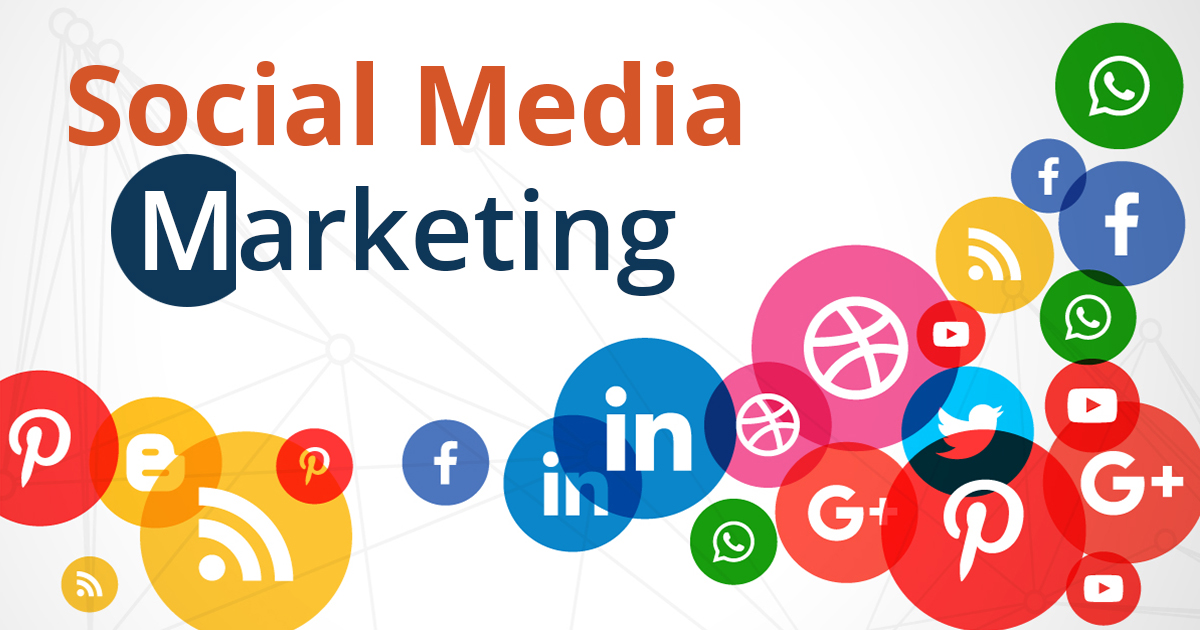Social Media Marketing: A Complete Guide to Grow Your Business
In today’s digital age, social media marketing has become an indispensable tool for businesses of all sizes. Whether you’re a small startup or an established brand, leveraging the power of social media can skyrocket your visibility, engagement, and ultimately, your success. In this comprehensive guide, we’ll dive into what social media marketing is, its benefits, tools, strategies, and provide real-life examples to illustrate its impact.
What is Social Media Marketing?
At its core, social media marketing (SMM) is the use of social media platforms to connect with your audience to build your brand, increase sales, and drive website traffic. This involves publishing great content on your social profiles, listening to and engaging your followers, analyzing results, and running social media advertisements.
Popular platforms include Facebook, Instagram, Twitter, LinkedIn, Pinterest, and TikTok, each offering unique ways for brands to connect with users. Social media marketing goes beyond posting random content. It’s about consistency, value, and engagement — all of which work together to create meaningful relationships with customers.
Social Media Marketing Benefits
Now that you have an understanding of social media marketing, let’s explore its advantages.
- Increased Brand Awareness
By having a presence on multiple social media platforms, your business becomes more accessible and recognizable. Each time you post or interact with followers, you increase visibility. - Improved Customer Engagement
Social media offers two-way communication. Your customers can comment, like, or share your posts, providing real-time feedback. Businesses that actively engage with their audience tend to foster stronger loyalty. - Cost-Effective Marketing
Compared to traditional forms of advertising like TV or print, social media marketing is much more affordable. Even paid ads on social media tend to offer great returns on investment, especially when targeted to a specific audience. - Enhanced Search Engine Rankings
While social media itself doesn’t directly influence search engine rankings, consistent posting, engagement, and brand visibility can lead to more web traffic and mentions, which in turn boosts SEO. - Increased Conversion Rates
With the ability to target specific demographics and retarget website visitors, social media marketing is a powerful tool for driving conversions. You can use ads, special offers, and calls-to-action to guide your audience towards purchasing.
Social Media Marketing Tools
To excel in social media marketing, it’s essential to use the right tools to help manage, analyze, and improve your strategy. Here are some top tools to consider:
- Hootsuite
A social media management tool that allows you to schedule posts in advance across multiple platforms, monitor engagement, and analyze performance metrics. - Buffer
Similar to Hootsuite, Buffer helps you schedule posts, track performance, and collaborate with teams. It also provides insights on the best times to post based on past engagements. - Canva
For creating visually appealing graphics and content, Canva is a must-have. This tool offers templates and easy design features to help non-designers craft engaging visuals for posts. - Google Analytics
While not exclusively a social media tool, Google Analytics can help you track where your website traffic comes from, including social media referrals. - Sprout Social
A robust social media management tool that allows you to plan campaigns, analyze results, and engage with your audience from a single dashboard.
By using these tools, you can streamline your social media efforts, making your strategy more efficient and impactful.
Social Media Marketing Strategy
An effective social media marketing strategy requires careful planning and execution. Here’s a step-by-step guide to building a successful strategy:
- Set Clear Goals
Before anything, define what you want to achieve. Whether it’s growing your follower base, driving traffic to your website, or increasing product sales, your goals will shape your strategy. - Know Your Audience
Understanding your audience is key. Research their demographics, interests, and behavior on social media. This will help you tailor your content to resonate with them better. - Choose the Right Platforms
Don’t spread yourself too thin by being active on every social platform. Focus on the ones where your target audience is most active. For instance, Instagram might be ideal for a fashion brand, while LinkedIn works best for B2B companies. - Create a Content Plan
A well-thought-out content calendar is essential. Plan posts around relevant topics, holidays, and events. Include a mix of promotional content, user-generated content, and engaging visuals. - Measure and Adjust
Use analytics tools to monitor the performance of your posts. Track key metrics like engagement rate, reach, and conversion. Based on these insights, adjust your strategy to improve results.
Social Media Marketing Examples
Now that you understand the benefits, tools, and strategies, let’s look at a few real-world social media marketing examples from brands excelling in this area.
- Nike’s Inspirational Campaigns
Nike is known for its powerful social media presence, especially on Instagram. They frequently use emotionally driven content, including videos and imagery that inspire athletes of all levels to “Just Do It.” Nike’s posts are designed to resonate with their audience’s aspirations, creating a deep connection with the brand. - Wendy’s Twitter Account
Wendy’s has gained a cult following thanks to its snarky and humorous Twitter responses. By engaging in witty banter and even roasting competitors, Wendy’s has turned its Twitter presence into an engaging, entertainment-driven marketing channel. - GoPro’s User-Generated Content
GoPro’s social media strategy revolves around user-generated content. By encouraging customers to share photos and videos captured using their GoPro cameras, they’ve built a massive community. This strategy not only promotes their product but also fosters brand loyalty. - Starbucks’ Hashtag Campaigns
Starbucks often leverages hashtag campaigns, encouraging users to share photos of their drinks using specific hashtags. For example, during seasonal promotions like #PumpkinSpiceLatte, the brand capitalizes on the user engagement to amplify their reach.
Conclusion
In today’s fast-paced digital world, social media marketing is no longer optional—it’s essential. With the right strategy, tools, and approach, your business can reap the numerous benefits of increased brand awareness, improved customer engagement, and higher conversion rates. By learning from successful brands and continuously refining your approach, you’ll be well on your way to mastering the art of social media marketing.
Start today by setting clear goals, using powerful tools, and engaging your audience consistently. Social media isn’t just a place to post updates; it’s a dynamic marketing platform where meaningful connections and growth happen.
This blog is SEO-friendly with each section focusing on the keywords provided. It includes clear headings, practical tips, and real-life examples to ensure reader engagement and value.



